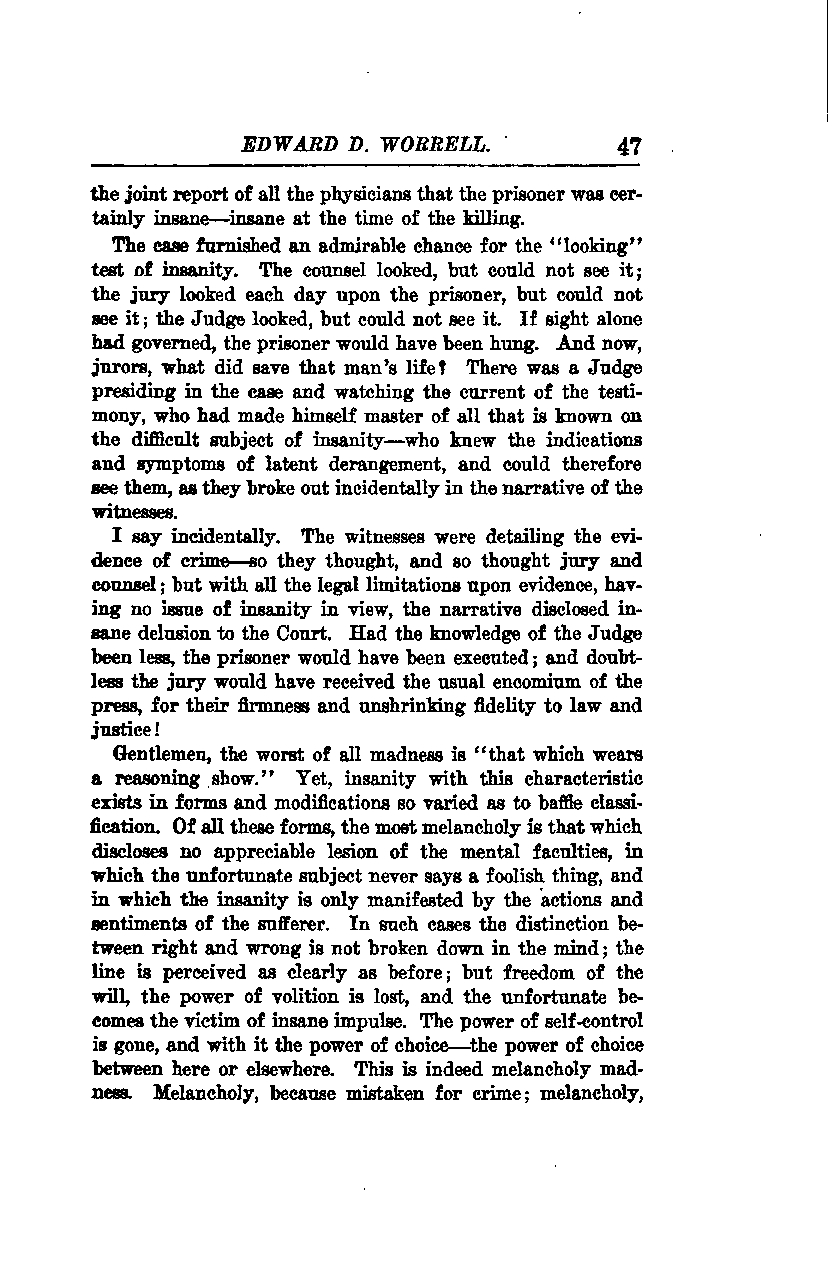
Here is the translated text as follows:
EDWARD D. WORRELL. © 47
The joint report of all the physicians concluded that the prisoner was certainly insane at the time of the killing.
The case provided an excellent opportunity for the "looking" test of insanity. The counsel looked, but could not see it; the jury looked each day upon the prisoner, but could not see it; the judge looked, but could not see it. If sight alone had governed, the prisoner would have been hanged. And now, jurors, what did save that man's life? There was a judge presiding in the case and watching the current of the testimony, who had made himself a master of all that is known on the difficult subject of insanity—who knew the indications and symptoms of latent derangement, and could therefore see them, as they broke out incidentally in the narrative of the witnesses.
I say incidentally. The witnesses were detailing the evidence of the crime—so they thought, and so thought the jury and counsel; but with all the legal limitations upon evidence, having no issue of insanity in view, the narrative disclosed insane delusion to the court. Had the knowledge of the judge been less, the prisoner would have been executed; and doubtless the jury would have received the usual encomium of the press, for their firmness and unshrinking fidelity to law and justice!
Gentlemen, the worst of all madness is "that which wears a reasoning show." Yet, insanity with this characteristic exists in forms and modifications so varied as to baffle classification. Of all these forms, the most melancholy is that which discloses no appreciable lesion of the mental faculties, in which the unfortunate subject never says a foolish thing, and in which the insanity is only manifested by the actions and sentiments of the sufferer. In such cases, the distinction between right and wrong is not broken down in the mind; the line is perceived as clearly as before; but freedom of the will, the power of volition, is lost, and the unfortunate becomes the victim of insane impulse. The power of self-control is gone, and with it the power of choice—the power of choice between here or elsewhere. This is indeed melancholy madness. Melancholy, because mistaken for crime; melancholy, because it leads to such tragic outcomes.